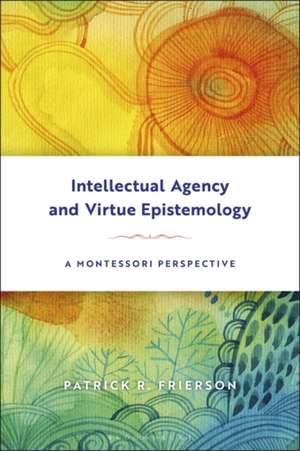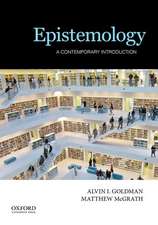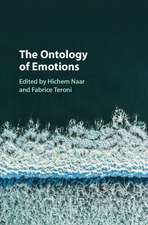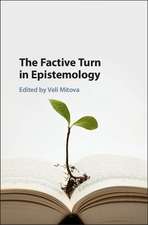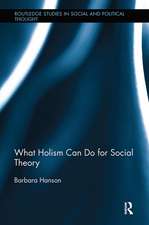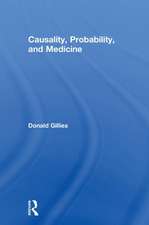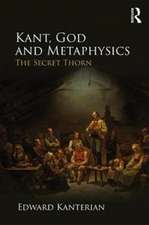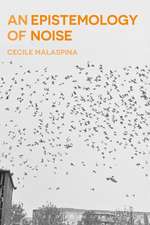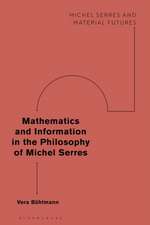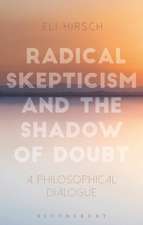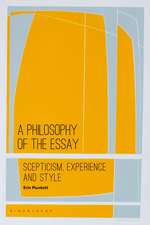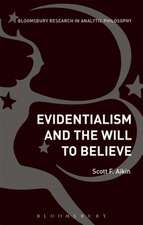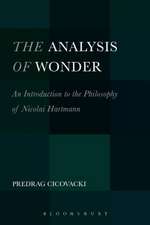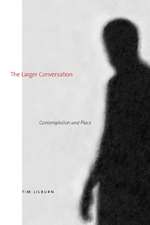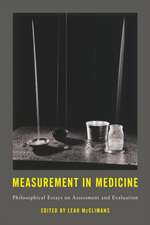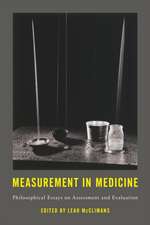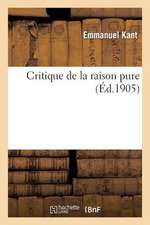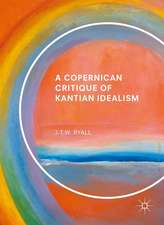Intellectual Agency and Virtue Epistemology: A Montessori Perspective
Autor Patrick Friersonen Limba Engleză Hardback – 11 dec 2019
| Toate formatele și edițiile | Preț | Express |
|---|---|---|
| Paperback (1) | 218.47 lei 6-8 săpt. | |
| Bloomsbury Publishing – 16 iun 2021 | 218.47 lei 6-8 săpt. | |
| Hardback (1) | 657.54 lei 6-8 săpt. | |
| Bloomsbury Publishing – 11 dec 2019 | 657.54 lei 6-8 săpt. |
Preț: 657.54 lei
Preț vechi: 840.12 lei
-22% Nou
Puncte Express: 986
Preț estimativ în valută:
125.81€ • 131.38$ • 103.90£
125.81€ • 131.38$ • 103.90£
Carte tipărită la comandă
Livrare economică 15-29 aprilie
Preluare comenzi: 021 569.72.76
Specificații
ISBN-13: 9781350018860
ISBN-10: 1350018864
Pagini: 272
Dimensiuni: 156 x 234 mm
Greutate: 0.56 kg
Editura: Bloomsbury Publishing
Colecția Bloomsbury Academic
Locul publicării:London, United Kingdom
ISBN-10: 1350018864
Pagini: 272
Dimensiuni: 156 x 234 mm
Greutate: 0.56 kg
Editura: Bloomsbury Publishing
Colecția Bloomsbury Academic
Locul publicării:London, United Kingdom
Caracteristici
Offers the first major philosophical engagement with Maria Montessori's thought, who is one of the most important early-years educators of the twentieth century
Notă biografică
Patrick R. Frierson is Professor of Philosophy at Whitman College, USA.
Cuprins
1. Introduction2. Maria Montessori's Interested Empiricism.3. Intelligence, the Unconscious, and the Body.4. Epistemic Virtues.5. Intellectual Character. 6. Intellectual Love.7. Sensory Acuity and Sensory Attentiveness.8. Physical Dexterity.9. Intellectual Patience and Quickness.10. Intellectual Humility and Courage.11. ConclusionBibliographyIndex
Recenzii
This is a provocative and well-executed book, brimming with potentially revolutionary insights regarding both intellectual virtue in general as well as specific intellectual virtues. It belongs in the personal library of any virtue epistemologist.
This book is among the first, if not the first, in the analytic epistemology literature to consider Maria Montessori as a philosophers in her ow right. This is a wonderful and lucid guide to the contributions a heretofore neglected philosopher can make to contemporary debates in virtue epistemology.
This book is among the first, if not the first, in the analytic epistemology literature to consider Maria Montessori as a philosophers in her ow right. This is a wonderful and lucid guide to the contributions a heretofore neglected philosopher can make to contemporary debates in virtue epistemology.
